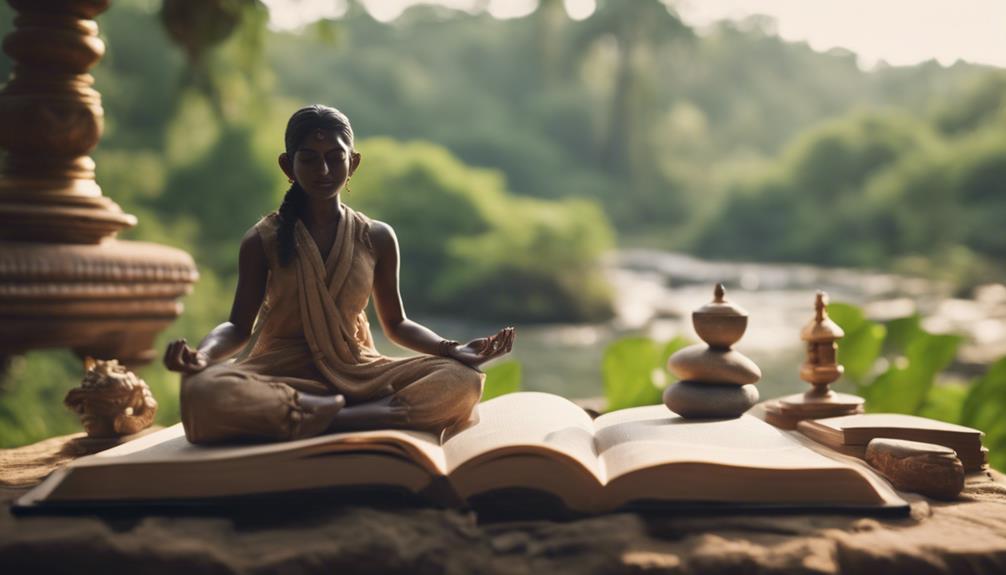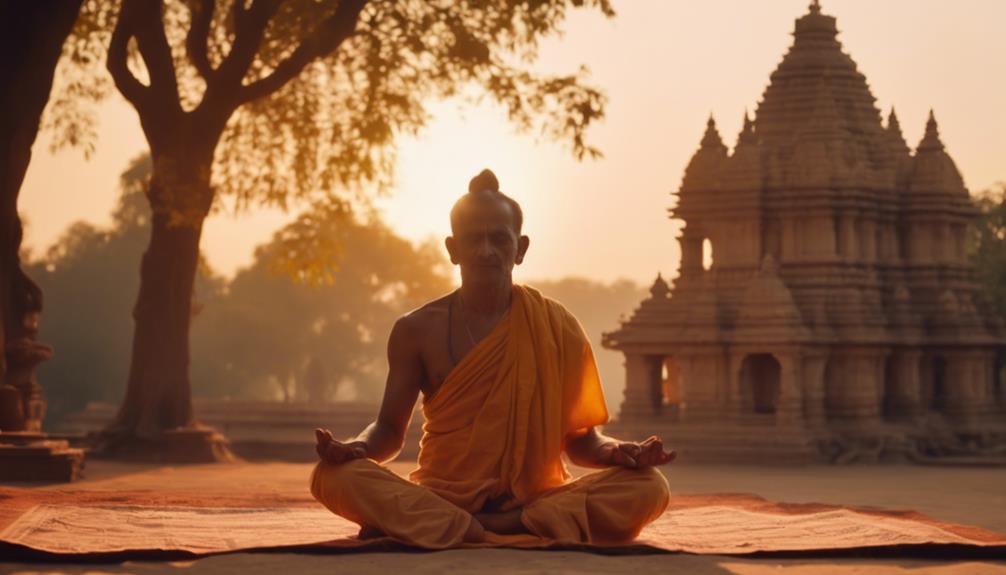
In the vibrant tapestry of spiritual practices, yoga stands out as a harmonious blend of body, mind, and spirit. With its roots deeply embedded in the ancient cultures of India, yoga invites practitioners to explore the depths of their being while fostering physical wellness. However, the question arises: is yoga primarily a Hindu or Buddhist practice? This inquiry opens a fascinating dialogue about the historical and spiritual threads that weave together the fabric of yoga, revealing its intricate connections to both religions. Join us as we unravel these threads and discover how yoga has evolved beyond its origins to become a universal practice embraced by many.
Unraveling the Spiritual Threads: Yoga’s Hindu and Buddhist Roots!
Yoga’s roots can be traced back over 5,000 years to the ancient sages of India, where it emerged in the context of Hindu philosophy. The Vedas, ancient sacred texts, contain some of the earliest references to yoga, emphasizing its role in meditation and achieving spiritual enlightenment. The concept of union—yoga literally means "to yoke" or "to join"—is foundational in Hindu thought, representing the connection between the self and the divine. As practitioners engage in asanas (postures) and pranayama (breath control), they cultivate a deeper awareness of their spiritual essence.can yoga make you flexiblehow to get certified in yoga
In contrast, Buddhism, which emerged around the 5th century BCE, has also adopted and adapted many elements of yoga. The Buddha himself practiced meditation and emphasized mindfulness, making yoga an essential component of Buddhist training. The Eightfold Path, a core aspect of Buddhist philosophy, incorporates practices similar to those found in yoga, such as right effort and right mindfulness. In this light, yoga serves as a bridge between these two rich spiritual traditions, facilitating a deeper understanding of self and existence.
Despite their distinct origins, Hinduism and Buddhism share a common goal: the pursuit of enlightenment and liberation from suffering. As yoga evolved, it absorbed and integrated aspects from both traditions, enriching its practice. Thus, while yoga can be identified with Hinduism through its ancient texts and ritualistic practices, it also resonates with Buddhist principles of mindfulness and compassion. This intersection fosters a unique space where individuals can explore their spirituality, drawing wisdom from both paths.
Finding Balance: How Yoga Harmonizes Ancient Traditions!
In our modern world, yoga has transcended its ancient roots to become a global phenomenon celebrated for its physical, mental, and emotional benefits. The integration of various styles and philosophies has created a rich tapestry that appeals to a diverse audience. From Hatha to Vinyasa, and from Kundalini to Yin, each style carries elements that reflect either Hindu or Buddhist influences, allowing practitioners to find a path that resonates with their personal journey.
The principles of mindfulness and self-awareness are central to both Hindu and Buddhist practices, and yoga beautifully encapsulates this duality. As practitioners flow through poses or sit in meditation, they learn to cultivate presence and awareness, fostering an inner balance that can transform their daily lives. This balance is not just about achieving physical flexibility; it is about nurturing a flexible mind and spirit, creating harmony within oneself and with the world around.
Moreover, the modern yoga community often emphasizes inclusivity and acceptance, inviting individuals from all walks of life to explore their spiritual paths. By blending the teachings of Hinduism and Buddhism, yoga offers a unique sanctuary where practitioners can connect with their inner selves while embracing the diverse perspectives of others. This sense of community and shared experience fosters a joyful exploration of spirituality that transcends the confines of religion, allowing everyone to partake in the magical journey of yoga.
As we embark on our own yoga journeys, it becomes clear that the practice encompasses a rich blend of Hindu and Buddhist philosophies, making it a beautiful embodiment of spiritual unity. The wisdom, teachings, and traditions of these ancient paths continue to inspire modern practitioners, inviting them to explore their own connections to the divine. Whether one identifies more with the Hindu roots or the Buddhist practices, yoga remains a powerful tool for self-discovery and transformation. So step onto your mat with an open heart and mind, and embrace the joyful dance that is yoga—a celebration of the intertwined threads that bind us all in our quest for balance and enlightenment!





